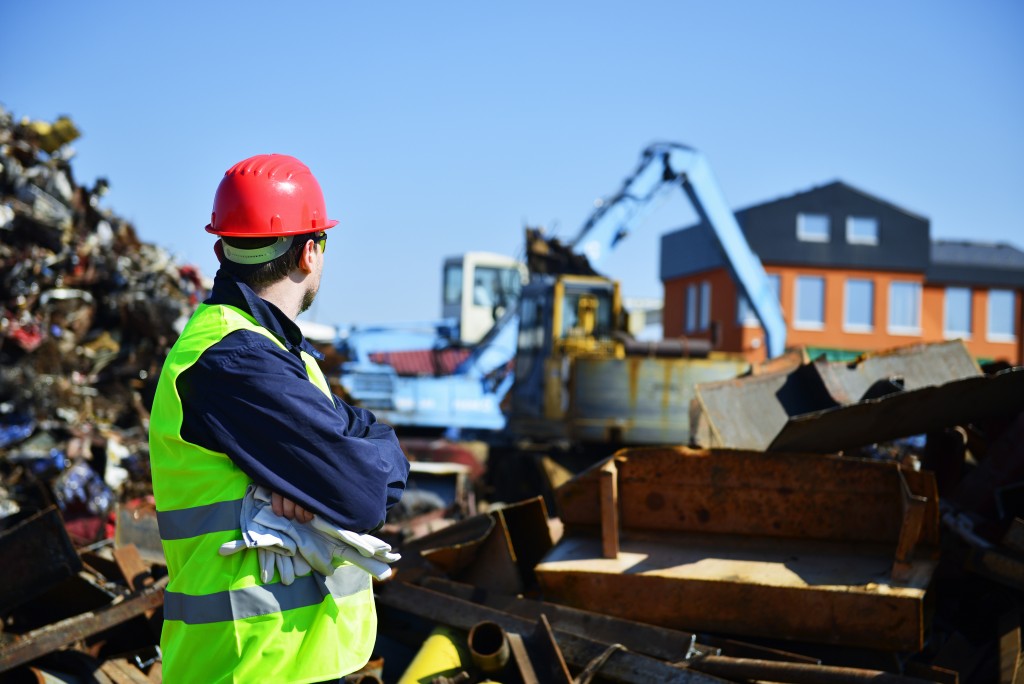More often than not, we think of garbage as dirt. And as such, we stay as far away from it as possible. It’s but natural. But when you’re in the industry, thinking of waste as the end of the line may not be helpful. A timely paradigm shift should therefore be in order. When you do that, you not only push your company forward but also help Mother Earth in the process. In short, it’s a win-win scenario worth pursuing.
By and large, America has been notorious as a wasteful nation. Experts have established that Americans waste natural resources far more than any other nation on the planet, China including. It is observed that the average American will consume resources as many as 35 Indians and consume goods 53 times more than an average Chinese. And we’re not just talking about adults. Each child born in the U.S. will exact 13 times more ecological damage in his lifetime than someone born in Brazil.
Indeed, it’s about time you take a closer look at your garbage. Instead of looking at it as a problem, you’d do better if you view it as a solution. And that includes your money problem. Here’s a lowdown to get you started.
Segregation
To start, you need to segregate your industrial waste. Think of it as you would separating the grain from the chaff. That way, you can determine what kind of material you’re looking at and proceed intelligently. In this regard, you should aim to do away with hazardous waste and separate it from more useful trash. We’re talking about compostable material, recyclable materials, and non-hazardous solid waste.
Remember that to handle your industrial waste effectively, you must aim for the three Rs in waste management: reduce, reuse and recycle. Doing that should put the planet first, giving Mother Earth the utmost minimum of harm.
Take note that although much of the waste may not be usable or compostable, it’s highly likely recyclable. So it’s critical that right from the get-go, you assign dumpster or recycling bins where these can be sorted with much ease. Without segregation, it’s next to impossible to make the most of your industrial garbage as you won’t be able to process the bunch efficiently.
Recycling
Recycling is at the heart of effective industrial waste management. And this should be good news for financial managers who want to find ways to add dollars to the company’s fund.
Indeed, you can also earn dollars from recyclable industrial garbage. It’s critical then that you put your industrial processes in order in this regard. It is only with ample understanding of what is recyclable and properly processing it that you help attain a more eco-friendly approach in trash management, not to mention one that can help improve your finances.
For one, you can forward your recyclable trash to recycling centers. Many of them can process plastic, glass, and paper. It’s paramount, however, that you use an industrial baler to get the job done as efficiently as possible. Over the years, Marathon has become a standard baler for countless industrial applications, thanks to the brand’s reliability and its wide list of options for all trash volumes, small and large.

Balers are best for recyclable yet dry materials (metal, cardboard, plastics, paper). It can help compress and pack these materials, so storing and transporting them is a lot more manageable.
By using a baler, selling your recyclable waste to your choice recycling center is a lot easier. You can do more and forward more in a shorter span of time. This way, you bring about an extra revenue stream otherwise not available to you.
Composting
Another key process you should tap for your industrial waste is composting. Quite simply, this is turning organic waste into useful fertilizer that is good for growing plants. Again, technical know-how as to what can be composted and not composted is a must. Note that majority of food waste can be composted. Moreover, some unsafe organic materials can also be composted. Some items you can compost are:
- Newspaper
- Leaves
- Food waste
- Small cardboard
- Sawdust
Once the composting process is done, you can add compost to the soil to enrich it and make it a nutrient-rich ground for growing healthier plants. Needless to say, composting is helping Mother Earth thrive.
Use of Landfills
Think of landfills as the ultimate solution in waste disposal. As much as possible composting and recycling should be foremost on your mind when it comes to industrial waste. The process of burying waste in the land should be the last resort, though, for many, it’s the easiest, most popular one.
In this regard, you should make sure that you have taken the steps mentioned above before you send your industrial waste to a landfill. And that means you’re segregated. You’ve already taken care of your recyclable and compostable waste. Thus, what goes to the landfill should be non-recyclable and non-compostable.
Know that the landfill can be useful to Mother Earth. Decomposed waste can release gases convertible to natural gases and useful to man as power and fuel. That’s telling you your industrial waste matters when handled right.

